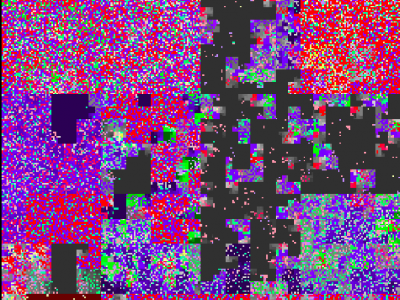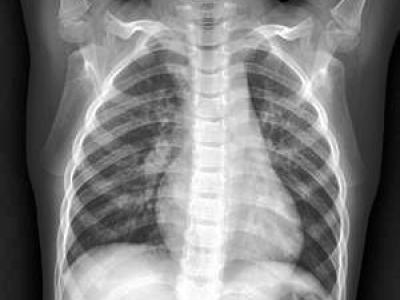Image Processing
Reverse transcription-polymerase chain reaction (RT-PCR) is currently the gold standard in COVID-19 diagnosis. It can, however, take days to provide the diagnosis, and false negative rate is relatively high. Imaging, in particular chest computed tomography (CT), can assist with diagnosis and assessment of this disease. Nevertheless, it is shown that standard dose CT scan gives significant radiation burden to patients, especially those in need of multiple scans.
- Categories:
 3205 Views
3205 Views
The dataset consists of two classes: COVID-19 cases and Healthy cases
- Categories:
 2055 Views
2055 ViewsDATA PROVIDED PRIOR TO ACCEPTANCE OF THE ASSOCIATED MANUSCRIPT.
This dataset contains video sequences and stereo reconstruction results supporting the IEEE Access contribution "Stereo laryngoscopic impact site prediction for droplet-based stimulation of the laryngeal adductor reflex" (J. F. Fast et al.).
See readme file for further information.
- Categories:
 299 Views
299 Views
This contains data corresponding to the paper Multi-Resolution Data Fusion for Super-Resolution Imaging.
- Categories:
 201 Views
201 Views
Without publicly available dataset, specifically in handwritten document recognition (HDR), we cannot make a fair and/or reliable comparison between the methods. Considering HDR, Indic script’s document recognition is still in its early stage compared to others such as Roman and Arabic. In this paper, we present a page-level handwritten document image dataset (PHDIndic_11), of 11 official Indic scripts: Bangla, Devanagari, Roman, Urdu, Oriya, Gurumukhi, Gujarati, Tamil, Telugu, Malayalam and Kannada.
- Categories:
 1648 Views
1648 Views
An offline handwritten signature dataset from two most popular scripts in India namely Roman and Devanagari is proposed here.
- Categories:
 1968 Views
1968 Views<p>The dataset comprises 2035 images from 14 different software architectural patterns (100+ images each), viz., Broker, Client Server, Microkernel, Repository, Publisher-Subscriber, Peer-to-Peer, Event Bus, Model View Controller, REST, Layered, Presentation Abstraction Controller, Microservices, and Space-based patterns.</p>
- Categories:
 862 Views
862 Views
Supplementary materials for manuscript: Self-absorption Correction in X-ray Fluorescence Computed Tomography with Deep Convolutional Neural Network,
- Categories:
 99 Views
99 ViewsMedical Symptoms are sometimes very tricky to analyse in real time as it takes time for example, first to detect the symptoms then to perform some tests and finally coming to a solution. This process can be eliminated and lot of time can be saved by introducing the concept of Deep learning. CNNs create a network for extracting the features of a given image in order to evaluate the image based on the conditions required. This property of the CNN is used as a certain advantage in order to detect the symptoms based on the type of X-ray images provided.
- Categories:
 2965 Views
2965 Views


